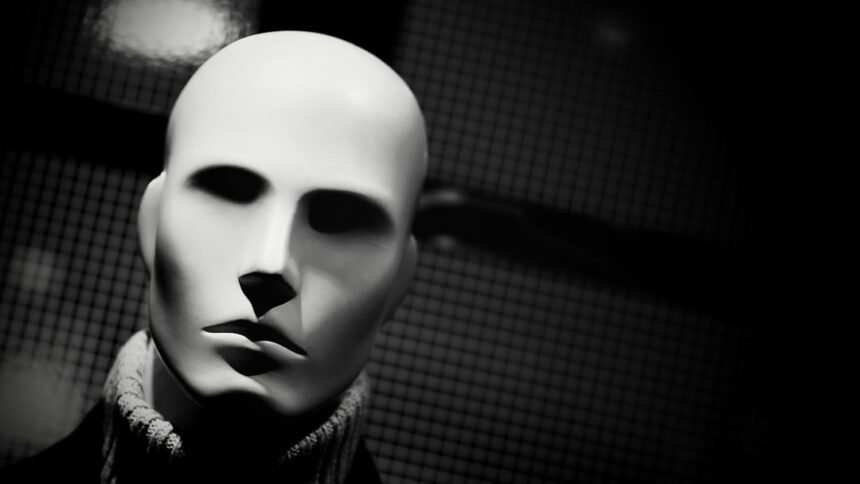To truly grasp the complexities of Obsessive-Compulsive Disorder (OCD), depersonalization, and derealization, it is essential to delve into each condition’s unique characteristics. OCD is a mental health disorder marked by persistent, unwanted thoughts (obsessions) and repetitive behaviors or mental acts (compulsions) that individuals feel driven to perform. These obsessions can create significant anxiety, leading you to engage in compulsive behaviors in an attempt to alleviate that distress.
The cycle can be exhausting, as the temporary relief gained from compulsions often reinforces the obsessive thoughts, creating a vicious loop that can be difficult to escape. On the other hand, depersonalization and derealization are dissociative experiences that can occur alongside OCD or independently. Depersonalization involves feeling detached from your own body or thoughts, as if you are an observer of yourself rather than an active participant in your life.
Derealization, conversely, is characterized by a sense of unreality regarding your surroundings, making the world feel distant or distorted. These experiences can be disorienting and frightening, often exacerbating the anxiety associated with OCD. Understanding these conditions is the first step toward finding effective strategies for managing their impact on your life.
Key Takeaways
- Understanding OCD, Depersonalization, and Derealization:
- OCD is a mental health disorder characterized by intrusive thoughts and repetitive behaviors.
- Depersonalization involves feeling detached from oneself, while derealization involves feeling detached from the world.
- Recognizing the Symptoms of OCD with Depersonalization and Derealization:
- Symptoms may include obsessive thoughts, compulsive behaviors, and feelings of unreality or detachment.
- Individuals may experience anxiety, depression, and difficulty concentrating.
- Seeking Professional Help for OCD and Depersonalization/Derealization:
- It is important to seek help from mental health professionals, such as therapists or psychiatrists.
- Treatment may involve therapy, medication, or a combination of both.
- Exploring Treatment Options for OCD with Depersonalization and Derealization:
- Cognitive-behavioral therapy (CBT) and exposure and response prevention (ERP) are common treatments for OCD.
- Therapy may also address depersonalization and derealization symptoms.
- Developing Coping Strategies for Managing OCD and Depersonalization/Derealization:
- Learning relaxation techniques, such as deep breathing or mindfulness, can help manage symptoms.
- Engaging in enjoyable activities and maintaining a healthy lifestyle can also be beneficial.
- Building a Support System for Dealing with OCD and Depersonalization/Derealization:
- Connecting with friends, family, or support groups can provide emotional support and understanding.
- Educating loved ones about the disorders can help them provide better support.
- Managing Triggers and Stressors Related to OCD and Depersonalization/Derealization:
- Identifying triggers and developing strategies to cope with them is important for managing symptoms.
- Stress management techniques, such as exercise or meditation, can help reduce symptoms.
- Incorporating Mindfulness and Self-Care Practices into Daily Life:
- Practicing mindfulness can help individuals stay present and reduce feelings of detachment.
- Self-care activities, such as getting enough sleep and maintaining a healthy diet, are important for overall well-being.
- Addressing the Impact of OCD and Depersonalization/Derealization on Relationships:
- Communicating openly with loved ones about the disorders can help maintain healthy relationships.
- Seeking couples or family therapy may be beneficial for addressing relationship challenges.
- Setting Realistic Goals and Expectations for Recovery from OCD and Depersonalization/Derealization:
- Recovery is a journey, and it is important to set achievable goals and be patient with progress.
- Celebrating small victories and seeking professional guidance can help individuals stay motivated.
- Embracing the Journey of Healing and Growth with OCD and Depersonalization/Derealization:
- Accepting the ups and downs of recovery and focusing on personal growth can be empowering.
- Engaging in activities that bring joy and fulfillment can contribute to overall well-being.
Recognizing the Symptoms of OCD with Depersonalization and Derealization
Recognizing the symptoms of OCD, particularly when intertwined with depersonalization and derealization, is crucial for effective management. You may find yourself grappling with intrusive thoughts that provoke intense anxiety, leading you to perform compulsive rituals in an attempt to regain a sense of control. Common obsessions might include fears of contamination, harm coming to loved ones, or doubts about your own morality.
These thoughts can be distressing and persistent, often leaving you feeling trapped in a cycle of worry. When depersonalization and derealization enter the picture, the experience can become even more complex. You might notice moments where you feel disconnected from your thoughts or body, as if you are watching yourself from a distance.
This can lead to confusion and heightened anxiety, as you struggle to reconcile your internal experiences with the external world. Recognizing these symptoms is vital; it allows you to articulate your experiences better and seek appropriate help. By understanding how these symptoms manifest in your life, you can begin to take proactive steps toward managing them.
Seeking Professional Help for OCD and Depersonalization/Derealization

Seeking professional help is a critical step in addressing OCD and its associated symptoms of depersonalization and derealization. Mental health professionals can provide you with a safe space to explore your thoughts and feelings without judgment. They can help you understand the underlying mechanisms of your OCD and how it interacts with dissociative experiences.
Therapy options such as Cognitive Behavioral Therapy (CBT) have proven effective for many individuals struggling with OCD, as they focus on changing negative thought patterns and behaviors. In addition to therapy, medication may also be an option worth considering. Selective serotonin reuptake inhibitors (SSRIs) are commonly prescribed for OCD and can help alleviate some of the symptoms associated with both OCD and depersonalization/derealization.
A mental health professional can work with you to determine the best course of action tailored to your specific needs. Remember that seeking help is not a sign of weakness; it is a courageous step toward reclaiming control over your life.
Exploring Treatment Options for OCD with Depersonalization and Derealization
| Treatment Option | Effectiveness | Side Effects |
|---|---|---|
| Exposure and Response Prevention (ERP) | High | Mild anxiety during exposure |
| Cognitive Behavioral Therapy (CBT) | Effective | None reported |
| Medication (SSRIs) | Varies | Nausea, insomnia, sexual dysfunction |
| Mindfulness and Meditation | Varies | None reported |
When it comes to treatment options for OCD accompanied by depersonalization and derealization, a multifaceted approach often yields the best results. Cognitive Behavioral Therapy (CBT) remains one of the most effective treatments for OCD. This therapeutic approach helps you identify and challenge irrational thoughts while gradually exposing you to feared situations in a controlled manner.
By confronting your fears head-on, you can learn to manage anxiety without resorting to compulsive behaviors. In addition to CBT, mindfulness-based therapies can be beneficial for those experiencing depersonalization and derealization. Mindfulness practices encourage you to stay present in the moment, fostering a greater connection between your mind and body.
Techniques such as grounding exercises can help anchor you in reality when feelings of detachment arise. Furthermore, exploring alternative therapies like art or music therapy may provide additional avenues for expression and healing. The key is to find a combination of treatments that resonate with you and address both OCD and dissociative symptoms effectively.
Developing Coping Strategies for Managing OCD and Depersonalization/Derealization
Developing coping strategies is essential for managing the challenges posed by OCD alongside depersonalization and derealization. One effective strategy is creating a structured daily routine that incorporates time for self-care, relaxation, and mindfulness practices. Establishing a sense of predictability in your day can help reduce anxiety levels and provide a sense of control over your environment.
Another valuable coping mechanism is journaling. Writing down your thoughts and feelings can serve as an outlet for processing emotions related to OCD and dissociative experiences. It allows you to externalize your internal struggles, making them feel more manageable.
Additionally, consider engaging in physical activities such as yoga or walking in nature; these activities can ground you in your body and promote a sense of connection to the present moment. By actively implementing these coping strategies into your life, you can cultivate resilience against the challenges posed by OCD and its associated symptoms.
Building a Support System for Dealing with OCD and Depersonalization/Derealization

Building a robust support system is crucial when navigating the complexities of OCD along with depersonalization and derealization. Surrounding yourself with understanding friends and family members who are willing to listen can make a significant difference in your journey toward healing. Open communication about your experiences fosters empathy and creates an environment where you feel safe discussing your struggles without fear of judgment.
In addition to personal relationships, consider joining support groups or online communities where individuals share similar experiences. Connecting with others who understand what you’re going through can provide validation and encouragement during difficult times.
Remember that you are not alone in this journey; reaching out for support can be a powerful step toward recovery.
Managing Triggers and Stressors Related to OCD and Depersonalization/Derealization
Identifying and managing triggers related to OCD and dissociative experiences is essential for maintaining emotional well-being. Triggers can vary widely from person to person; they may include specific situations, environments, or even certain thoughts that provoke anxiety or feelings of detachment. Keeping a journal to track these triggers can help you recognize patterns over time, allowing you to develop strategies for coping when faced with them.
Once you’ve identified your triggers, consider implementing proactive measures to manage them effectively. This might involve creating a list of grounding techniques that you can use when feeling overwhelmed or practicing deep breathing exercises during moments of heightened anxiety. Additionally, learning to set boundaries in situations that exacerbate your symptoms can empower you to take control of your mental health journey.
By actively managing triggers and stressors, you can reduce their impact on your daily life.
Incorporating Mindfulness and Self-Care Practices into Daily Life
Incorporating mindfulness and self-care practices into your daily routine can significantly enhance your ability to cope with OCD alongside depersonalization and derealization. Mindfulness encourages you to focus on the present moment without judgment, which can be particularly helpful when dealing with intrusive thoughts or feelings of detachment. Simple practices such as mindful breathing or body scans can ground you in reality, helping alleviate anxiety.
Self-care is equally important; it involves prioritizing activities that nurture your physical, emotional, and mental well-being. This could include engaging in hobbies that bring you joy, spending time in nature, or practicing relaxation techniques like meditation or yoga. By dedicating time each day to self-care, you reinforce the idea that your well-being matters, fostering resilience against the challenges posed by OCD and dissociative experiences.
Addressing the Impact of OCD and Depersonalization/Derealization on Relationships
OCD and its associated symptoms of depersonalization and derealization can significantly impact your relationships with others. You may find yourself withdrawing from social interactions due to feelings of shame or fear of being misunderstood. It’s essential to recognize that these conditions do not define who you are; they are merely aspects of your experience that require understanding and compassion.
Open communication with loved ones about your struggles can foster deeper connections and promote empathy within your relationships. Sharing how OCD affects your daily life allows others to better support you during challenging times. Additionally, consider involving trusted friends or family members in your treatment journey; their support can be invaluable as you navigate recovery together.
Setting Realistic Goals and Expectations for Recovery from OCD and Depersonalization/Derealization
Setting realistic goals for recovery from OCD alongside depersonalization and derealization is crucial for maintaining motivation throughout your journey. Understand that recovery is not linear; there will be ups and downs along the way. Instead of aiming for perfection, focus on small, achievable milestones that reflect progress over time.
For instance, you might set a goal to practice mindfulness for five minutes each day or gradually expose yourself to a feared situation related to your OCD. Celebrate these small victories as they come; acknowledging progress reinforces positive behavior changes and encourages continued growth. By setting realistic expectations for yourself, you create a more compassionate framework for navigating recovery.
Embracing the Journey of Healing and Growth with OCD and Depersonalization/Derealization
Embracing the journey of healing from OCD alongside depersonalization and derealization requires patience, self-compassion, and resilience. Understand that healing is not merely about eliminating symptoms but also about learning how to coexist with them while fostering personal growth along the way. Each step taken toward understanding yourself better contributes to building a more fulfilling life despite the challenges posed by these conditions.
As you navigate this journey, remember that setbacks are part of the process; they do not signify failure but rather opportunities for learning and growth. Embrace each experience as a chance to deepen your understanding of yourself while cultivating resilience against future challenges.
In exploring the complexities of depersonalization and derealization within the context of OCD, it’s essential to consider the broader spectrum of anxiety disorders and their impact on mental health. An insightful article that delves into these topics can be found on Unplugged Psych, which provides a comprehensive overview of various psychological conditions and their manifestations. For a deeper understanding, you can read more about these issues by visiting this article on Unplugged Psych. This resource offers valuable perspectives on how these experiences can affect individuals and the importance of seeking appropriate treatment.
LEARN MORE About Unmasking the Mysteries Behind Depersonalization and Derealization
FAQs
What is depersonalization and derealization OCD?
Depersonalization and derealization OCD is a type of obsessive-compulsive disorder (OCD) characterized by persistent and distressing feelings of detachment from oneself (depersonalization) and the surrounding environment (derealization).
What are the symptoms of depersonalization and derealization OCD?
Symptoms of depersonalization and derealization OCD may include feeling disconnected from one’s body or thoughts, experiencing a sense of unreality or detachment from the environment, and feeling like an outside observer of one’s own thoughts and actions.
What causes depersonalization and derealization OCD?
The exact cause of depersonalization and derealization OCD is not fully understood, but it is believed to involve a combination of genetic, neurological, and environmental factors. Trauma, stress, and anxiety may also contribute to the development of these symptoms.
How is depersonalization and derealization OCD diagnosed?
Depersonalization and derealization OCD is typically diagnosed by a mental health professional, such as a psychiatrist or psychologist, through a comprehensive evaluation of the individual’s symptoms, medical history, and any potential underlying mental health conditions.
What are the treatment options for depersonalization and derealization OCD?
Treatment for depersonalization and derealization OCD may include a combination of psychotherapy (such as cognitive-behavioral therapy), medication (such as selective serotonin reuptake inhibitors), and stress-reduction techniques. It is important for individuals to work with a qualified mental health professional to develop a personalized treatment plan.
Can depersonalization and derealization OCD be cured?
While there is no definitive cure for depersonalization and derealization OCD, many individuals can experience significant improvement in their symptoms with appropriate treatment and support. It is important for individuals to seek help from mental health professionals and to actively participate in their treatment plan.




